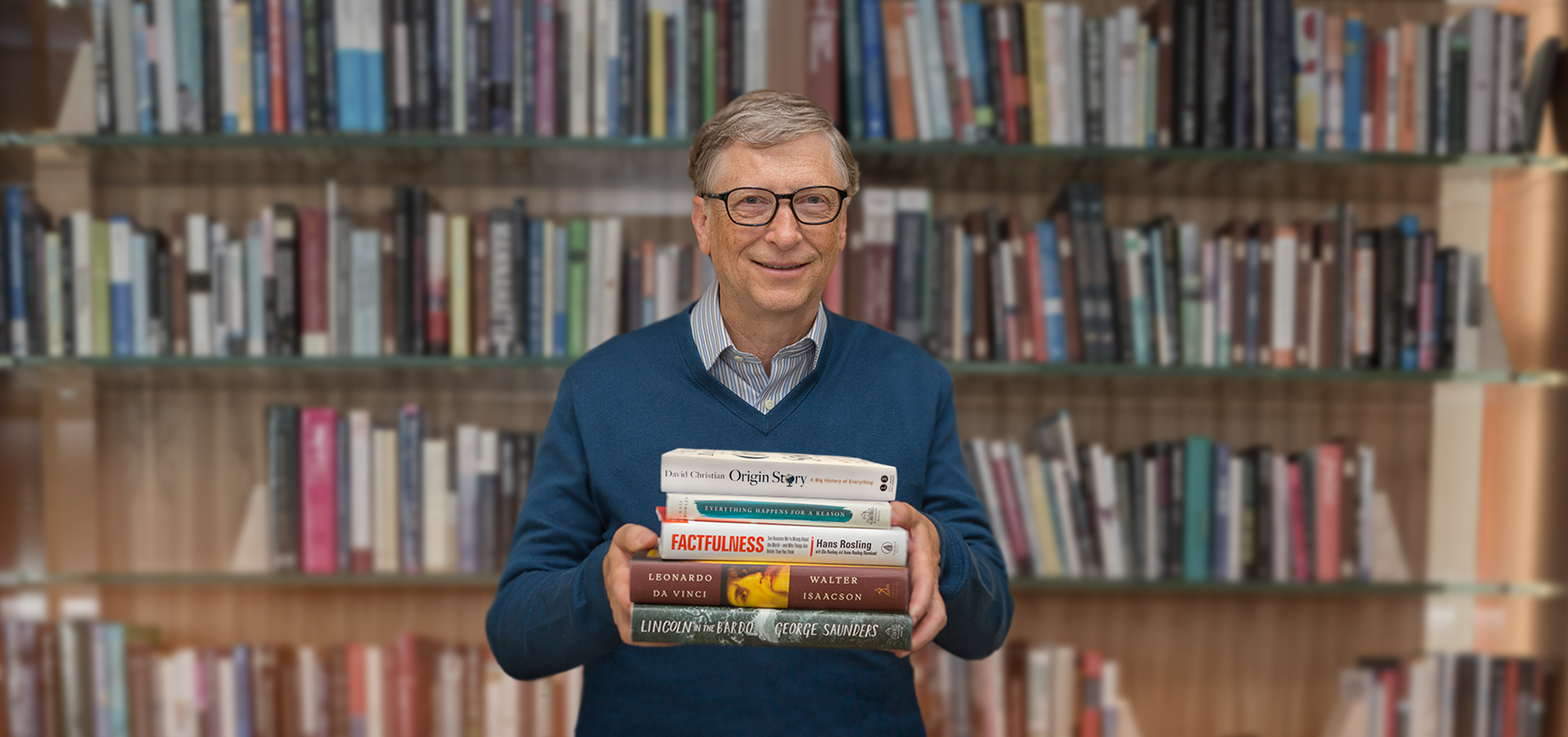
Bill Gates wants you to do some serious thinking this summer. For his annual list of the best books to read this season, Gates has selected five heavy hitters that pose big questions: “What makes a genius tick? Why do bad things happen to good people? Where does humanity come from, and where are we headed?”
But beach readers need not worry. In a post announcing his picks on Gates Notes, he adds: “All these books are fun to read, and most of them are pretty short.” Here, the five books Gates wants you to read this summer.
Leonardo da Vinci, by Walter Isaacson
Gates became the proud owner of one of Leonardo da Vinci’s surviving journals in the 1990s, and his fascination with the artist and inventor has lived on. “More than any other Leonardo book I’ve read, this one helps you see him as a complete human being and understand just how special he was,” Gates writes of Isaacson’s biography. “When you look across all of Leonardo’s many abilities and his few failings, the attribute that stands out above all else was his sense of wonder and curiosity.”
Everything Happens for a Reason: and Other Lies I’ve Loved, by Kate Bowler
The only memoir on his list this year, Gates selected Bowler’s story of battling stage IV colon cancer because it asks an essential question: Why? Bowler, a religious scholar, grapples with faith and fate as she lives through the trials of illness — and does so with a sense of humor, Gates writes. “It’s inspiring to see this thoughtful woman face such weighty topics with honesty and humor.”
Lincoln in the Bardo, by George Saunders
Saunders, a MacArthur genius grant recipient, earned a Man Booker Prize for his novel centered around the death of Abraham Lincoln’s son, Willie — the first novel for the writer of acclaimed short stories. “Saunders also uses excerpts from historical texts to tell the story of Willie’s death and its aftermath. I loved how he uses these flashbacks to show how fuzzy our recollections of the past can be,” Gates writes. “It reminded me of the musical Hamilton, which deals with similar ideas about how storytellers shape history.”
Origin Story: A Big History of Everything, by David Christian
“It’s human nature to be curious about where we come from,” Gates writes, “and origin stories unite people through a common history and shared sense of purpose.” Christian’s book draws its inspiration from his online class Big History — which Gates describes as his “favorite course of all time” — about the origin and evolution of life in our universe.
Factfulness: Ten Reasons We’re Wrong About the World-and Why Things Are Better Than You Think, by Hans Rosling
Swedish physician and statistician Hans Rosling developed an audience with his ideas about addressing global health. He died in 2017, but left behind Factfulness, co-written by his son and daughter-in-law and published in April. Rosling “gives you a breakthrough way of understanding basic truths about the world — how life is getting better, and where the world still needs to improve,” Gates writes. “It’s a fitting final word from a brilliant man, and one of the best books I’ve ever read.”
More Must-Reads from TIME
- Cybersecurity Experts Are Sounding the Alarm on DOGE
- Meet the 2025 Women of the Year
- The Harsh Truth About Disability Inclusion
- Why Do More Young Adults Have Cancer?
- Colman Domingo Leads With Radical Love
- How to Get Better at Doing Things Alone
- Michelle Zauner Stares Down the Darkness
Write to Lucy Feldman at lucy.feldman@time.com



